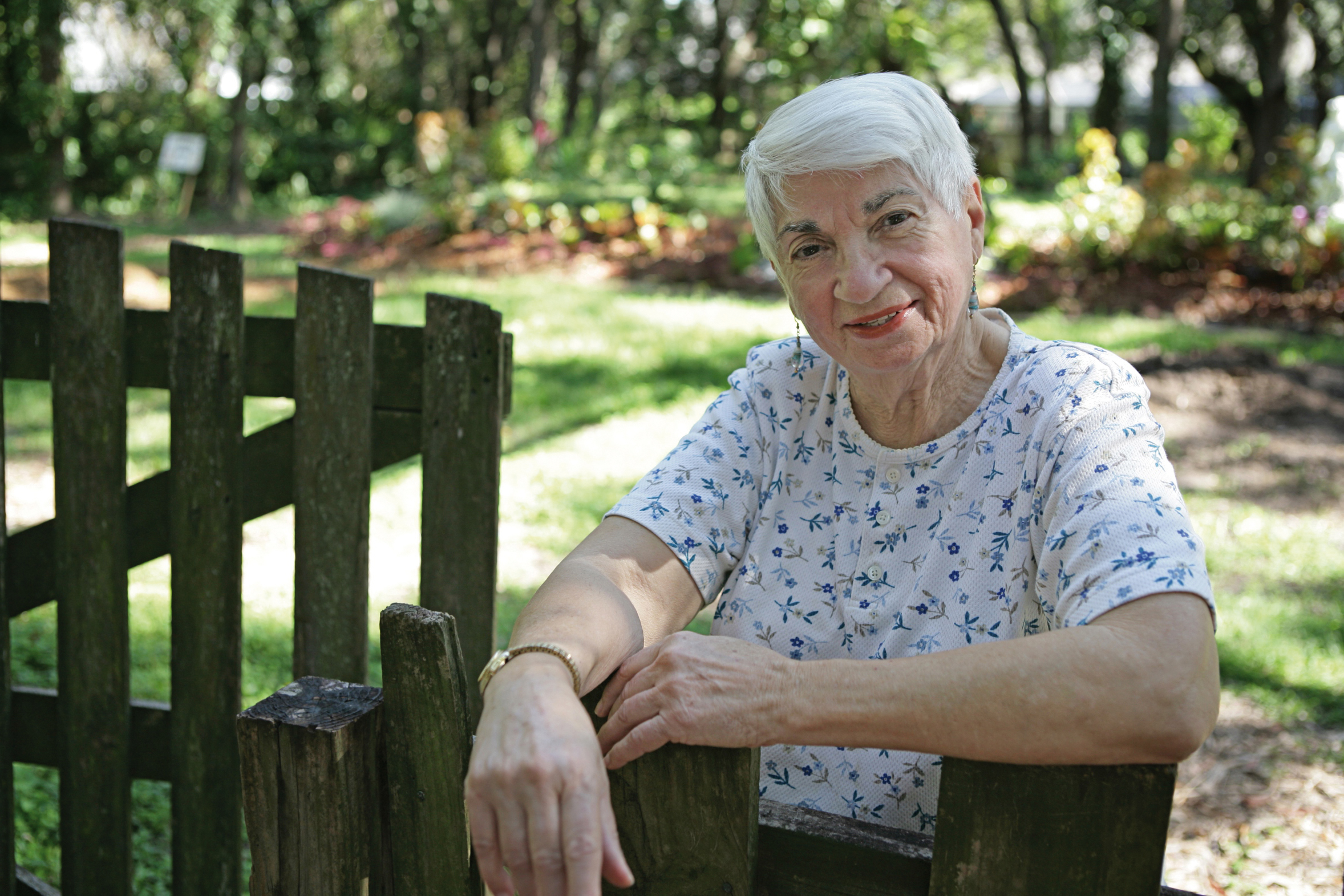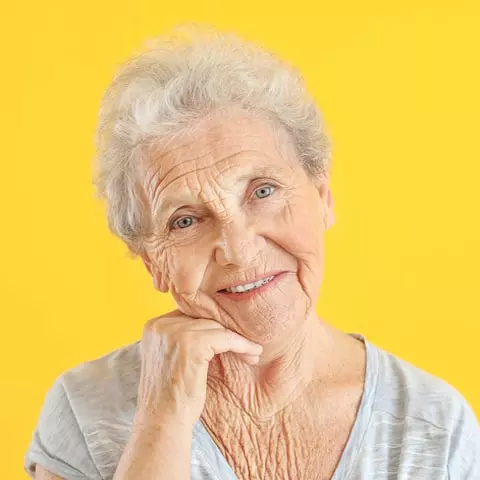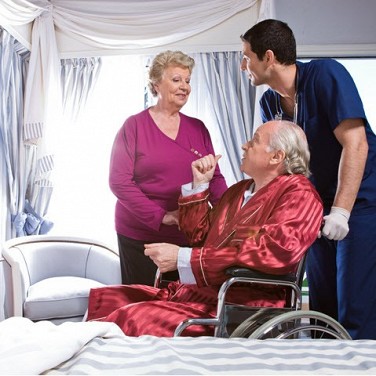
Neurological conditions can manifest at any age, but they often become more prevalent in older adults. Some of these conditions, such as migraines and brain injuries, are associated with heightened sensitivity to both light and sound. In this article, we will explore the relationship between neurological conditions, aging, and the development of sensitivity to light and sound.
Neurological conditions in aging adults
As individuals age, they are more susceptible to certain neurological conditions. These conditions can have various causes, from genetic predisposition to environmental factors, and they can significantly impact one's quality of life. Two neurological conditions often associated with sensitivity to light and sound in aging adults are migraines and brain injuries.
Find YOUR ideal care home NOW!
Migraines
Migraines are a common and often debilitating type of headache disorder. They can occur at any age but become more prevalent in older adults. Migraines are characterized by severe, throbbing head pain, often on one side of the head, and are frequently accompanied by other symptoms, including sensitivity to light and sound.
Causes of migraines:
-
Genetic predisposition: A family history of migraines can increase an individual's likelihood of developing them.
-
Hormonal changes: Fluctuations in hormone levels, particularly in women during menopause, can trigger migraines.
-
Stress: High levels of stress and tension are common migraine triggers.
-
Environmental factors: Exposure to strong odors, bright lights, and loud sounds can trigger migraines.
Brain injuries
Brain injuries, often resulting from falls or accidents, can occur more frequently in older adults. These injuries can lead to a range of neurological symptoms, including sensitivity to light and sound.
Causes of brain injuries:
-
Falls: Older adults are more prone to falls, which can result in head injuries.
-
Motor vehicle accidents: Accidents involving older drivers can lead to head injuries.
-
Age-related fragility: Changes in bone density and muscle mass can make older adults more vulnerable to injury.
Sensitivity to light and sound in neurological conditions
Sensitivity to light and sound, known as photophobia and phonophobia, respectively, is a common symptom in both migraines and brain injuries. The precise mechanisms behind these sensitivities are not fully understood, but they are thought to result from hyperactivity of the sensory pathways in the brain.
In migraines, exposure to bright lights or loud sounds during an attack can intensify pain and discomfort. In the case of brain injuries, sensitivity to light and sound can persist as part of post-concussion syndrome, often experienced by older adults.
Management and coping strategies
Managing sensitivity to light and sound in the context of migraines and brain injuries often involves:
-
Avoiding triggers: Identifying and avoiding triggers such as bright lights, loud sounds, and strong odors.
-
Medication: In some cases, prescription medications can help reduce the frequency and severity of migraines and related sensitivities.
-
Protective measures: Wearing sunglasses and earplugs can help shield against excessive light and sound exposure.
-
Stress management: Stress reduction techniques, such as relaxation exercises and mindfulness, can help reduce the frequency of migraines.
Coping Strategies for Sensitivity to Light & Sound
| Management Strategy | How It Helps |
|---|---|
| Avoiding Triggers | Identifying and minimizing exposure to bright lights, loud noises, and strong odors can reduce symptoms. |
| Protective Measures | Using sunglasses, dim lighting, noise-canceling headphones, and earplugs helps protect against excessive stimulation. |
| Medication | Doctors may prescribe medications such as pain relievers or migraine treatments to manage symptoms. |
| Stress Management | Practicing mindfulness, relaxation exercises, and breathing techniques can lower stress-related triggers. |
| Hydration & Nutrition | Maintaining adequate hydration and a balanced diet can reduce migraine frequency and severity. |
| Regular Sleep Schedule | Consistent sleep patterns help stabilize brain function and reduce sensitivity to light and sound. |
Neurological conditions such as migraines and brain injuries can lead to sensitivity to both light and sound in aging adults. While these sensitivities can be challenging, understanding the causes and triggers, and implementing appropriate management strategies, can help improve the quality of life for those affected by these conditions. Seeking medical advice and support is essential for effective management and relief.
FAQ – Neurological Conditions & Sensory Sensitivities in Aging Adults
1. Why do aging adults become more sensitive to light and sound?
As people age, neurological conditions, brain injuries, and migraines can cause hypersensitivity in sensory pathways, leading to photophobia (light sensitivity) and phonophobia (sound sensitivity).
2. Are migraines more common in older adults?
Migraines can occur at any age but may become more frequent and severe in older adults due to hormonal changes, medication side effects, and underlying health conditions.
3. How can brain injuries cause light and sound sensitivity?
Brain injuries can affect the nervous system’s ability to process sensory input, leading to increased sensitivity to bright lights and loud sounds.
4. What are the best ways to reduce sensitivity to light?
- Wear sunglasses indoors and outdoors
- Use dim lighting instead of harsh fluorescent lights
- Take frequent breaks from screens and bright environments
5. Can stress make sensory sensitivity worse?
Yes! High stress levels can trigger migraines and increase the brain’s sensitivity to light and sound. Relaxation techniques such as deep breathing, meditation, and yoga can help manage stress.
6. What type of doctor should I see for sensory sensitivity?
If you experience persistent sensitivity to light or sound, consult a neurologist for proper diagnosis and treatment options.
7. Can dietary changes help with migraines and sensory sensitivity?
Yes! A diet rich in omega-3s, magnesium, and hydration can help reduce migraine severity and frequency. Avoid caffeine, alcohol, and processed foods, as they may trigger symptoms.
8. How does hydration impact neurological conditions?
Dehydration can trigger headaches, dizziness, and sensory sensitivities, making neurological symptoms worse. Seniors should drink at least 6-8 glasses of water per day.
9. Can medication help with light and sound sensitivity?
Doctors may prescribe medications such as:
- Beta-blockers (for migraines)
- Pain relievers
- Anti-inflammatory drugs
- Migraine-specific medications
10. When should I seek medical help for sensory sensitivity?
If sensitivity to light and sound persists for weeks or worsens over time, consult a healthcare provider to rule out neurological conditions or underlying health issues.
We are here to help you choose a care home or facility best suited to your needs. Do not hesitate to contact us on the following number: 0230 608 0055 or fill out this form.
Do you need a care home for you or for your loved one?
Share this article :
Latest posts
You are looking for an establishment for your loved one ?
Get availability & prices
Fill in this form and receive
all the essential information
We would like to inform you of the existence of the opposition list for telephone canvassing.

.webp)









